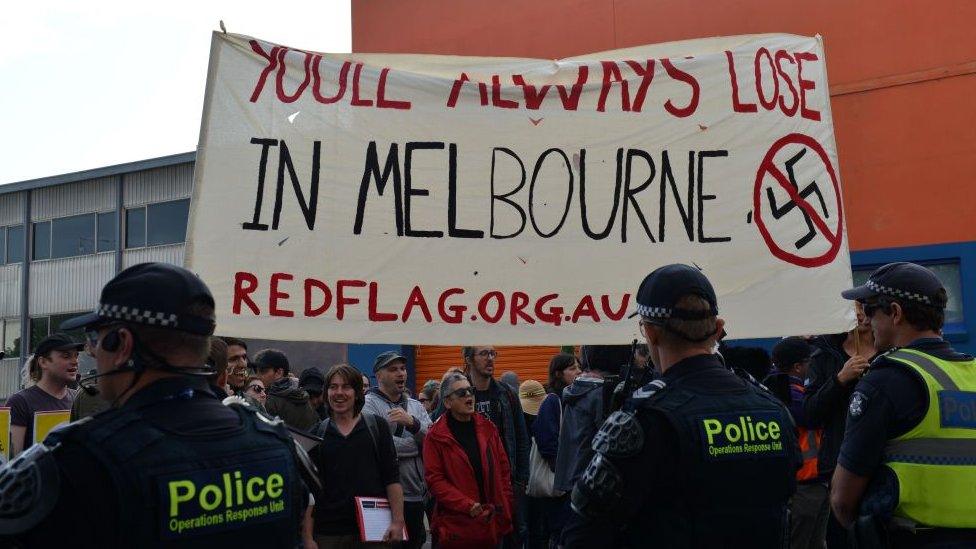Swastika: Victoria bans display of Nazi symbol in Australian first
- Published

Australia has seen demonstrations for and against the far right in recent years
Victoria has become Australia's first state to specifically ban the display of the Nazi swastika.
Under a new law, people who intentionally exhibit the symbol face up to a year in jail or a A$22,000 (拢12,300; $15,000) fine.
Victorian Premier Dan Andrews said "nobody has the right to spread racism, hate or anti-Semitism".
Like many places globally, Australia has seen a sharp rise in anti-Semitic incidents in recent times.
Victoria already has anti-hate speech laws - but they have been criticised for having "gaps".
A push for reform intensified in 2020 when a couple raised a swastika flag above their home, angering the local community.
State officials called the new legislation a "proud moment". Three other states have said they will introduce similar laws.
"The Nazi symbol glorifies one of the most hateful ideologies in history - its public display does nothing but cause further pain and division," said Victorian Attorney-General Jaclyn Symes in a statement.
There are exemptions for showing the symbol in historical, educational and artistic contexts. It can also be used in Hindu, Buddhist and Jain religious contexts - as it has been for millennia.
People will be prosecuted only if they defy a first request to remove the symbol.
Anti-Defamation Commission chairman Dvir Abramovich - who campaigned for the law - called it a "thunderous blow" to the neo-Nazi movement.
"As our nation confronts the deep stain of a resurgent white-supremacist movement that peddles a dangerous and dehumanising agenda, this parliament has declared that the symbol of Nazism will never find a safe harbour in our state," he told the Australian Broadcasting Corporation.
The number of anti-Semitic incidents around the world dramatically increased last year, according to a study by Tel Aviv University. Australia had 88 in one month alone - a national record.
In 2020, Australia's intelligence chief warned of a "real threat" to the country's security from neo-Nazis. He said "small cells" of right-wing extremists were meeting regularly to salute Nazi flags and share their ideology.
Since the pandemic began, unions and others have also accused far-right groups of "infiltrating" large protests about lockdowns and other restrictions.
The new laws will come into effect in six months.
You may also be interested in:
Hans Werk features in new documentary about members of Hitler's Third Reich